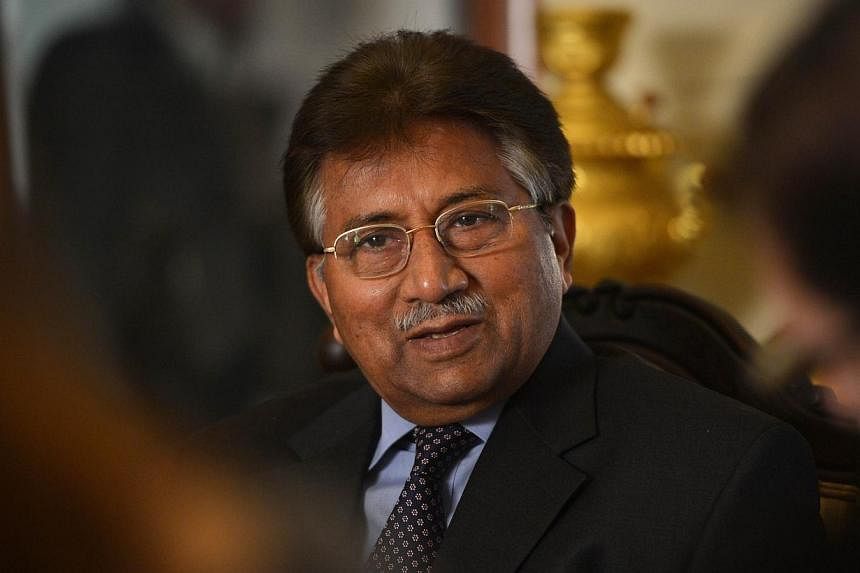ISLAMABAD (AFP) - Pakistan's Supreme Court has suspended a decision which would have allowed Pervez Musharraf to leave the country, the latest setback for the former military ruler who returned last year to run for election.
The move came after the government of Musharraf's rival Prime Minister Nawaz Sharif appealed against a lower court's decision to lift a travel ban which had briefly raised speculation that the 70-year-old could escape from a series of legal woes.
The latest order is not definitive and the Supreme Court will hear the case in detail in four weeks' time, court spokesman Shahid Komboh told AFP on Tuesday. It could still agree to let Musharraf leave the country.
Musharraf has said he wants the travel ban lifted so he can visit his sick mother in Dubai. But his opponents in Pakistan see it as a ruse to flee the country and avoid a series of cases dating back to his 1999-2008 rule. These include an indictment for treason over his imposition of emergency rule in 2007, a historic first in a country ruled for half its existence by the military.
The cases have angered the powerful army and raised tensions with civilian authorities at a time when Pakistan is waging a major military operation in a Taleban stronghold. Former commando Musharraf has been staying with his daughter in Karachi since April, where he travelled for tests at a navy-run hospital. He has been undergoing medical treatment since January after suffering heart problems on his way to court for a hearing.
After his treason indictment in March, Musharraf asked to be allowed to visit his mother, who is in her 90s, but was denied permission. His lawyers insist he will return to face the courts if he is allowed to leave.
The former ruler came to power in a bloodless coup in 1999, deposing then-prime minister Nawaz Sharif. Facing impeachment following the 2008 elections, Musharraf resigned as president and went into self-imposed exile in Dubai. He is also on bail in four other cases linked to his time in power including the 2007 assassination of opposition leader Benazir Bhutto, and the murder of Baluch nationalist leader Nawab Akbar Bugti in 2006.
Sharif became prime minister again in 2013, in the country's first transfer of power from one elected civilian administration to another after a full term in office.

